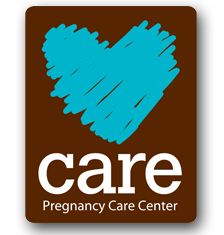The abortion pill, also known as a medical abortion, is a combination of two powerful drugs that work together to end a pregnancy and expel it from the uterus. However, in certain cases, only one drug is used (this isn’t as effective as the two-drug method).
If you’re facing an unplanned pregnancy and considering the abortion pill, it’s essential to learn all you can about this option to protect your health. Read on to the basics you need to know about the abortion pill. Or, if you want to talk to someone in person about your pregnancy options, contact Pregnancy Care Center today to connect with one of our caring team members. We do not perform or refer for abortion, but can help you make an informed decision.
How Does the Abortion Pill Work?
The abortion pill is comprised of two different drugs: mifepristone and misoprostol.
Mifepristone is taken first. It works by blocking progesterone in your body. Progesterone is a hormone that it’s necessary for sustaining a pregnancy, and without it, your pregnancy will end.
Misoprostol is taken next. It causes your uterus to contract, which forces your terminated pregnancy from your uterus and through your vagina.
In certain situations, only misoprostol is used. In this scenario, the drug terminates and removes the pregnancy via the uterine contractions.
How Might the Abortion Pill Affect Me Physically?
After taking the abortion drugs, you will experience abdominal cramping and vaginal bleeding.
However, you might also experience a risk, which can be rare but severe and include:
- Incomplete abortion, which may need to be followed by surgical abortion
- An ongoing pregnancy if the procedure doesn’t work
- Heavy and prolonged bleeding
- Infection
- Fever
- Digestive system discomfort
How Can I Protect My Health?
Certain situations make you ineligible for the abortion pill. Some of these situations include the following:
- Your pregnancy is 11 weeks gestation or older
- You have an intrauterine device (IUD) currently in place
- You have a suspected ectopic pregnancy
- You have certain medical conditions
- You take a blood thinner or certain steroid medicines
- You can’t make follow-up visits to your provider or don’t have access to emergency care
- You have an allergy to the medicine used
This list isn’t exhaustive, which is why it’s vital to speak with a healthcare professional and receive an ultrasound before seeking the abortion pill.
An ultrasound will give you critical information about your pregnancy—including your pregnancy’s age and location—that you need to stay safe.
Next Steps
You’re not alone in this. At Pregnancy Care Center, we’re here for you. We provide free, medically accurate information and resources that can help you make an informed decision about how to move forward in your pregnancy. Contact us today to schedule your appointment with one of our caring team members.
*NOTE: We offer accurate information about all your pregnancy options; however, we do not offer or refer for abortion services. The information presented on this website is intended for general education purposes only and should not be relied upon as a substitute for professional and/or medical advice.
